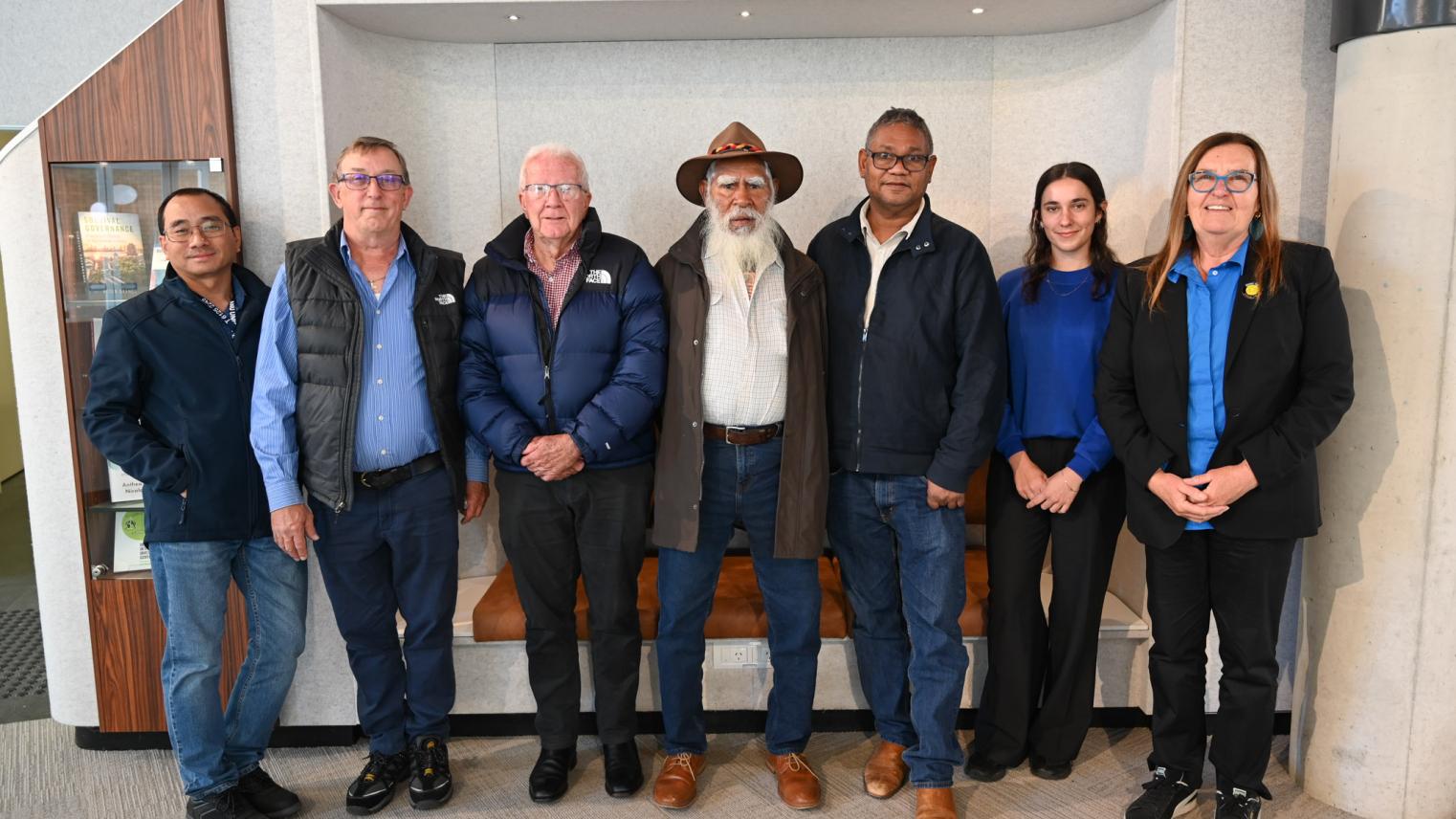National spotlight on Aboriginal medicines research project

The collaborative Aboriginal medicines research project between The Australian National University (ANU), Deakin University and Griffith University funded by the Australian Research Council (ARC) received a significant boost with two of the research partners winners of the inaugural ATSE Traditional Knowledge Award.
Renowned natural products chemist Professor Ron Quinn, and Nyikina Mangala senior Elder and traditional knowledge holder Mr John Watson, won the prestigious Award from the Australian Academy of Technological Sciences and Engineering for the research partnership between Kimberley Aboriginal knowledge holders and Griffith University that began 35 years ago and is now continuing through the collaborative ARC research partnership.
The research collaboration that led them to winning the ATSE Traditional Knowledge Award dates back some 30 years and has identified two classes of novel analgesic compounds, one effective for inflammatory pain and diabetic neuropathy and a second which mitigates sciatic nerve injury. Mr Watson’s Traditional Knowledge (TK) of the analgesic plant known as mudjala, which grows along the Fitzroy River enabled Prof Quinn’s research. The mudjala tree is an integral part of the creation story of the Fitzroy River, and although it grows across northern Australia it is only in the West Kimberley where mudjala is known to have powerful painkilling effects. The Nyikina Mangala people are traditional custodians and Knowledge Holders of this information, which has been passed down for generations.
A new research collaboration between the ANU, Griffith University, Deakin University and Nyikina Mangala traditional owners has come about through an ARC-funded Indigenous-led Aboriginal medicines research project. This collaborative project is undertaking further research with the goal of improving the pathways for Aboriginal medicines to gain TGA approval and shifting the mudjala medicine project closer towards commercialisation. Led by ANU School of Regulation and Global Governance’s Dr Virginia Marshall, an Aboriginal lawyer and expert in IP/TK and Indigenous governance, the 3-year ARC project is investigating the barriers and pathways to commercial development of Indigenous traditional medicines.
A recent addition to the research team is Binota Dhamai, an ANU early career researcher and former Chair of the UN Expert Mechanism on the Rights of Indigenous Peoples (EMRIP), who has joined the team as a postdoc research fellow focussing on Indigenous governance systems. ANU PhD scholar Paul Marshall, who coordinated the earlier mudjala R&D project on behalf of the Nyikina Mangala senior knowledge holders is documenting the history of the earlier project as well as researching the regulatory frameworks. In the latter he is supported by complementary medicines specialist Chris Oliver, a former R&D manager at Blackmores.
Alfred Deakin Professor Emma Kowal, Deputy Director at the Alfred Deakin Institute for Citizenship and Globalisation and a leading medical anthropologist, is documenting the traditional use of mudjala and the cultural protocols and traditional authorities relating to it, supported by Deakin postdoctoral research fellow Dr Mardi Reardon-Smith.
Senior Aboriginal knowledge holders John Watson and Annie Milgin are working with the research team as Indigenous Research Collaborators to guide the researcher’s engagement with traditional knowledge holders from Nyikina Mangala and a number of West Kimberley language groups as a key part of documenting the mudjala use and cultural authorities relating to it.
More information on the ARC Aboriginal medicines project can be found at: ARC Indigenous Medicines Project